The Best Short Stories of J. G. Ballard Book Review
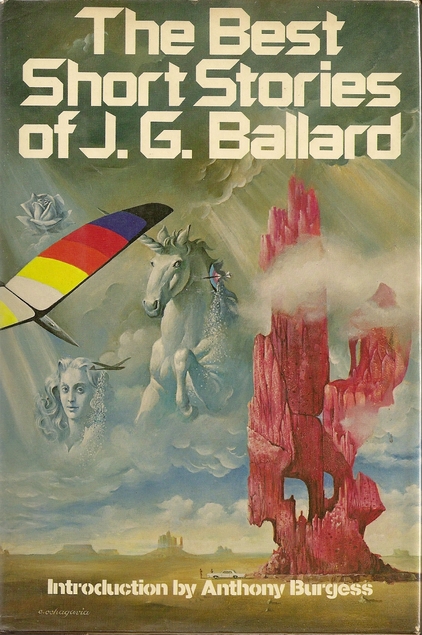
The Best Short Stories of J. G. Ballard
by J. G. Ballard; Introduction by Anthony Burgess
312 pages
Published by Holt, Reinhart and Winston (1978)
ISBN 0-03-045661-4
I am a great lover of scifi short story collections, and this volume of J. G. Ballard’s work, lent to me by a co-worker, is no exception. There are some top-notch stories in here, spanning just over twenty years of Ballard’s career. In the past when I have reviewed collections of short stories, I have usually featured a few really notable ones, and discussed the general theme of the work.
This time, I want to try the technique of giving each short story its own mini-review, along with a mini-score out of five stars. I’ve seen it done to good effect in other reviews, and it seems like fun. I also plan to discuss the general themes of the collection.
The Concentration City ***
One of the reasons I like reading old scifi is that because it ages so rapidly, you can get a better feel for the obsessions of the past. “The Concentration City” has a too obvious textual link with the then still new Nazi concentration camps, but a more subtle one with overpopulation. There is just one problem….
The eponymous city is huge. A county of the enclosed, multi-level city represents a thousand floors, one hundred thousand cubic miles, and a population of thirty million people. Each county is grouped with 249 others to form sectors, and 1500 sectors form a Local Union.
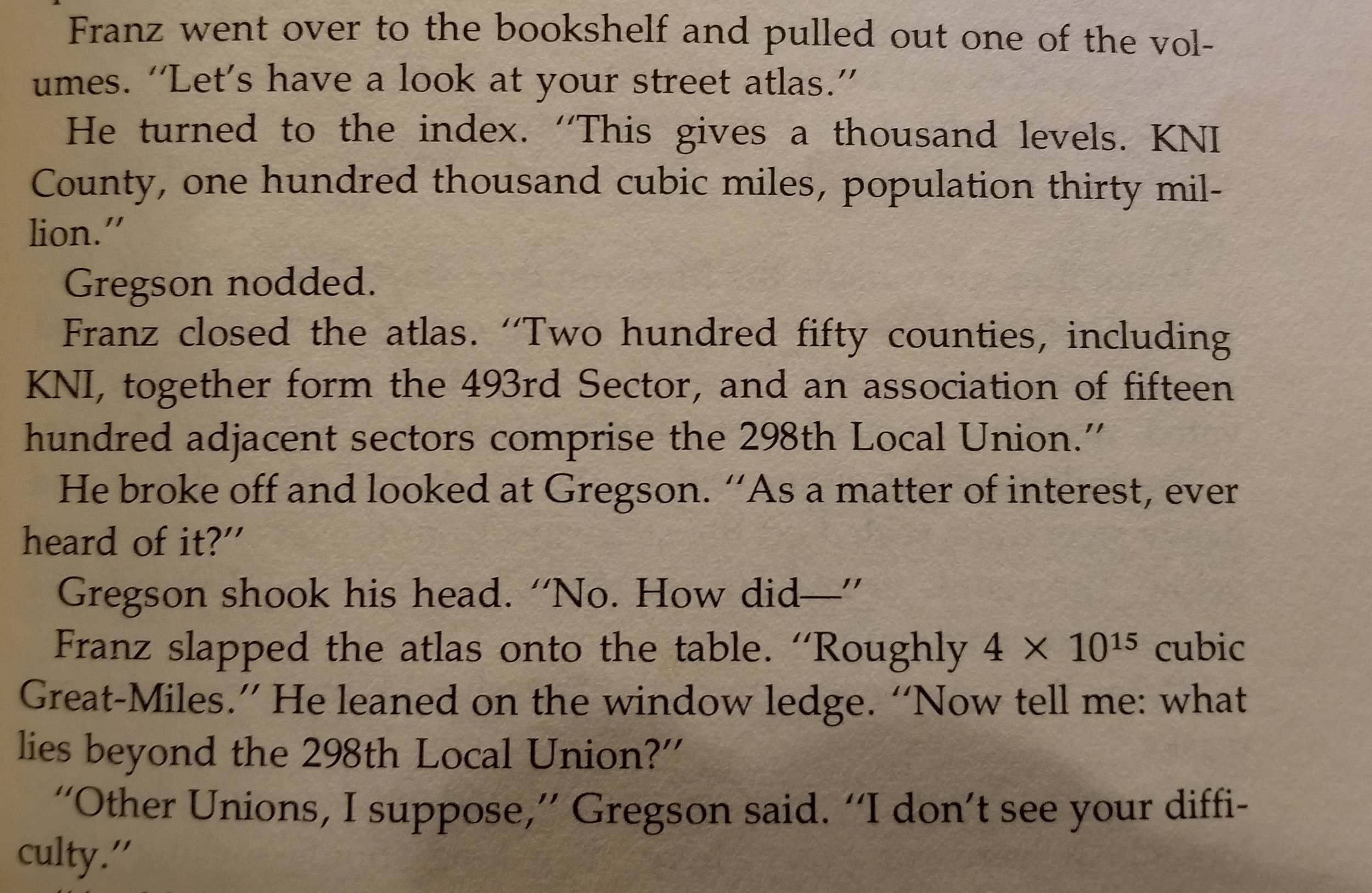
Let’s look at that math. Each county is a thousand levels, so each floor must be 100 square miles. That is about the same as a medium size American city, like Sacramento. If you assume roughly even distribution of those 30 million people, you get 30,000 people per floor….
Sacramento currently has almost 500,000 people in it, and I don’t know anyone who finds it oppressively dense. An order of magnitude less people would make it positively rural by almost anyone’s standards. I think Ballard was going for something like the feel of Alex Proyas’ 1998 movie Dark City, a movie also about an inescapable prison city, but just had no quantitative sense at all.
The city as a whole makes better sense as a crushing mass of humanity. 30 million people per county times 250 counties per sector times 1500 sectors per local union gives you 11 trilliion 250 billion people. And we see several local unions in the text! That is a number that can boggle the mind! It clearly seems to have boggled Ballard.
The story is strong on atmosphere, but weak in details. The huge numbers probably worked to inspire the right feeling in Ballard’s readers, so I suppose I can’t fault him for that stylistic sense, I just like it when an author tries hard to get the little things right even when most people won’t notice. It is like a carpenter who makes the lines straight on the backside where no one can see, the mark of a true craftsman.
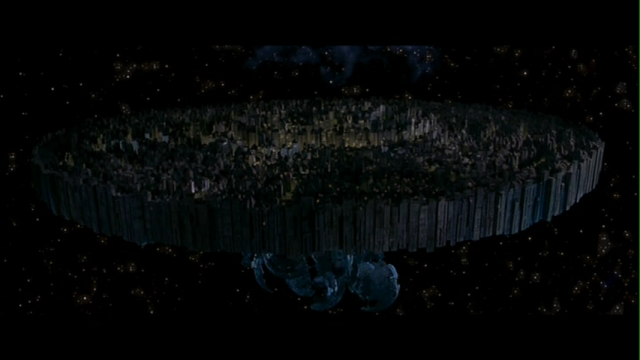
A visualization of a level, if you packed all 30 million into it
————————————————————
Manhole 69 **
The flavor text in this tale of a psychological/surgical experiment gone wrong is heavily Freudian. Sixty years later, it looks kind of stupid, given how far Freud’s reputation has fallen, but I have to imagine the flavor text of a contemporary book would look just as ridiculous in 2078.
————————————————————
Chronopolis *****
I love this one. At his best, Ballard had an impressive imagination that encompassed the good and the bad of both the thesis and the antithesis at once. Chronopolis is the ruin of a once great city that was overthrown in a revolution against the tyranny of precisely-scripted efficiency.
There is a bit more sloppiness about population density here, but what really struck me is that just before the protagonist is arrested for the forbidden practice of time-keeping, he restores the chimes of the bell tower of Chronopolis, and the muddled masses who mill about aimlessly start using the chimes to order their days again.
The city truly was tyrannical and inhumane in its time-keeping. It was also much more productive, supporting ten times as many people in far greater luxury. Being punctual is the epitome of quotidian, but it is easy to underestimate how valuable it truly is.
————————————————————
The Voices of Time ***
This was the first story in this collection that brought me up short. Ballard’s wikipedia entry describes his work as provocative and transgressive, and this is all of that in spades. “The Voices of Time” combines the mid-century English novel’s characteristic despair with post-apocalyptic dystopia.
We see a return of the themes from “Manhole 69”, but done far better; dubious scientific experiments attempting to literally excise the need for sleep from the human brain, badly suppressed erotic desires, and a pervasive sense of decline.
I’ve written a few posts recently about superversive science fiction. Superversive scifi attempts to create a sense of wonder and hope in the reader. The neologism is coined in opposition to subversive scifi, which seems to be aptly represented by Ballard. This story is hella edgy, and even though-provoking, but this isn’t the kind of scifi that inspires nerds to create stuff. This is the kind that inspires them to cut to feel.
————————————————————
Deep End ***
“Deep End” is a fantastic example of the kind of scifi that inspired the environmental movement. It also features an almost heroic protagonist, grimly determined to pay homage to a dying world, but also a bit cracked in the head.
The feel of this story is nearly Stoic in its unblinking acceptance of Fate, but not really interested in the cultivation of virtue that Stoicism entails.
————————————————————
The Overloaded Man ****
This story nails the feelings of alienation and ennui that accompanied the huge material successes of the mid-twentieth century. It also perceptively describes the dangers of mystical experience. Unlocking your psyche isn’t necessarily a good idea.
————————————————————
Billennium ***

Another overpopulation tale, but this one is subversive of the genre insofar as the protagonist ends up a capitalist in the end. Concern for overpopulation was a big thing in the middle of the twentieth century, but it largely got shoved down the memory hole at the beginning of the twenty-first, even though there are roughly twice as many people now as there were then. The rate of growth has slowed, but that likely isn’t the only reason. In part, I also think that those of us alive today simply don’t remember the world that existed before. Jerry Pournelle once pined for the America that had a population of 125 million people, which he thought was too many at the time. I can’t imagine my country with 200 million people not there.
————————————————————
The Garden of Time *****
Another Stoical tale of the calm acceptance of a horrible fate, with the suggestion of some preventable tragedy in the unwritten past. The garden, an oasis of beauty, will inevitably be overrun by the masses of the unwashed. Count Axel and his beautiful wife are the only inhabitants of the villa within the garden.
Each day, they watch the surging horde approach the villa. Each day, the count spends of the substance of the garden to delay the inevitable, until at last, nothing remains.
I have a hard time imagining that I am on board with the idea Ballard was getting at here, but this is an achingly beautiful story.
————————————————————
Thirteen for Centaurus ****
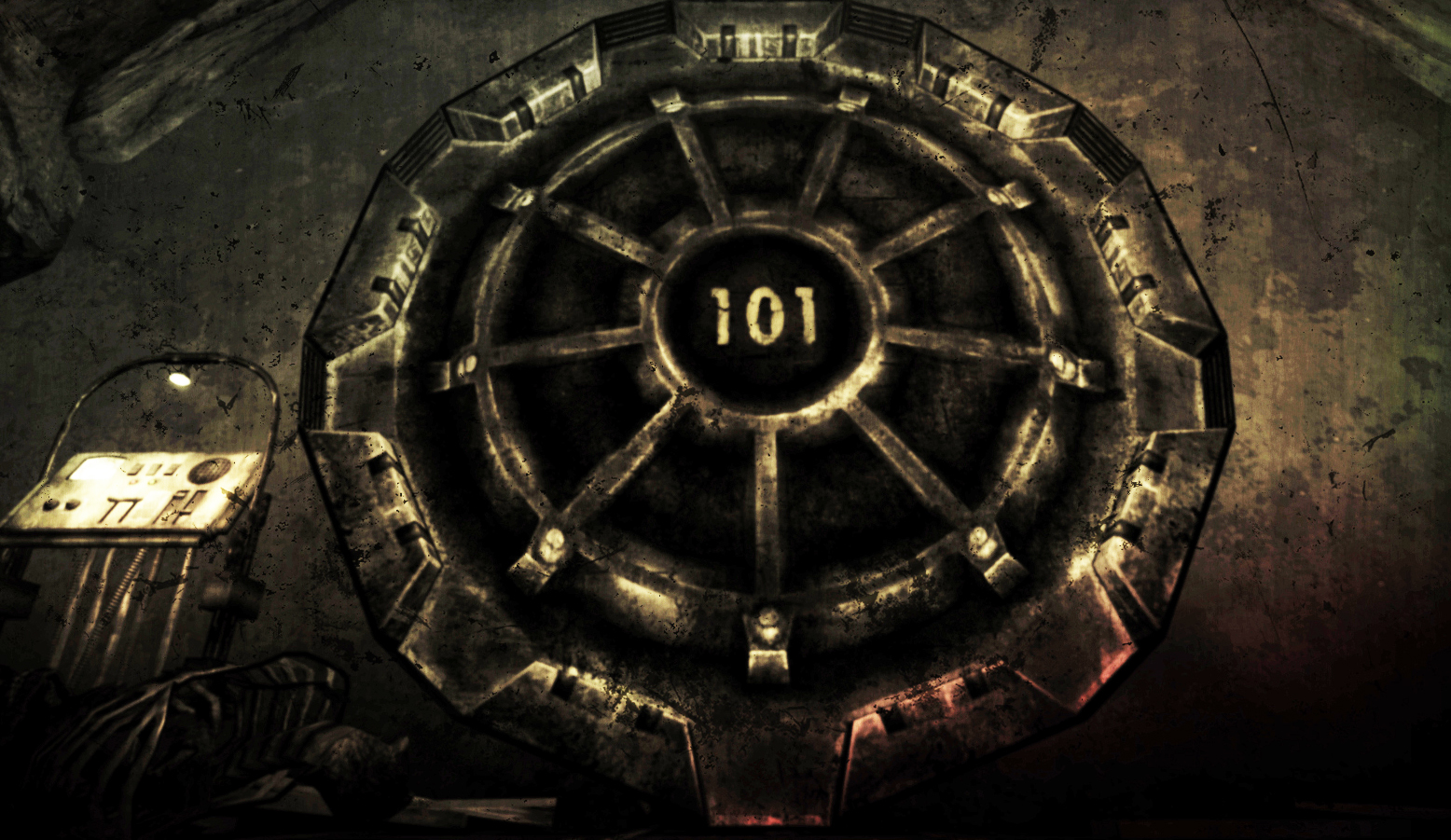
This is the Fallout short story, reminiscent of the sick experiments the Vault Corporation conducted on its customers. In real life, the best examples came later than the fictional 1950s of the Fallout series. The Stanford Prison Experiment, fraudulent from the start, was in 1971. “Thirteen for Centaurus” was written in 1962, earning Ballard some points for prescience, but losing some for missing the likely perpetrators. The military-industrial-complex didn’t run most of the shitty science of the mid-twentieth century. They just featherbedded the Cold War.
————————————————————
The Subliminal Man ***
A haunting extrapolation of the finding in economics that the most efficient economies in the world replace their equipment most frequently. I was pretty surprised when I found this out some number of years ago, but now that I work in manufacturing I can see how it works.
Unfortunately, it is also pretty obvious that doing faster and faster it just because it is supposedly more “efficient” would be counter-productive. An interesting conceit for a story, but too clever by half.
————————————————————
The Cage of Sand ****
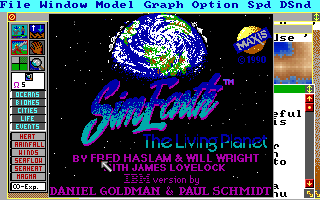
Unlike most of these short stories, “The Cage of Sand” was markedly improved by its ending. The premise was kind of stupid to me as physicist: eastern Florida had been turned into a facsimile of the Martian desert because we kept dumping Martian sand there to balance out the stuff we shipped to Mars in order to preserve the Earth’s orbital distance from the Sun. This was compounded by a plot device of dead astronauts in orbit, entombed in their space capsules, because they missed their one and only chance to rendezvous with an orbital platform.
Since my parents got me SimEarth on the Mac LC, I knew that there was no plausible way the fractional change in orbit from moving a few million tons of stuff to Mars would matter, due to the remarkable homeostasis of the Earth. But I already knew that Ballard wasn’t a details guy for the science stuff.
————————————————————
End Game ***
This one was completely unexpected. I didn’t need to be told that the Soviet Union was a tyranny the likes of which the world had never seen, but perhaps Ballard’s audience did in 1963. Clearly, Ballard had no sympathy for the Soviets in this tale of guilt, innocence, and power.
————————————————————
The Drowned Giant ****
At first, I was inclined to dismiss this uncanny tale of a overly large body washed up on shore, on account of Chesterton’s notion that mere physical size ought not to impress us. But then upon reflection, I realized Ballard was trying to criticize failing to see another’s humanity because of physical differences.
One point of contention I would take with Ballard is that he says the common people were more easily convinced that the bones left behind in the bay were merely a giant whale, than his professorial interlocutor. I don’t believe that for a second. Folk memory works just fine, you need to be highly educated to disbelieve your lying eyes.
————————————————————
The Terminal Beach **
As a child of the 1980s, I have struggled to understand the obsessions of my immediate predecessors with the Cold War. The Cold War still existed when I was a child, but it had obviously [to me] lost its sting. The apocalypticism of earlier generations regarding nuclear war often seemed disproportionate to me, and this story is all of that in spades.
Since it is also couched in now tainted Freudian terms, I find “The Terminal Beach” completely ridiculous. It doesn’t help that I have seen the same idea done far better by another author. You can get an interesting story out of the identification of sex and death, but Freud and Ballard alike didn’t manage to contribute anything interesting to the conversation.
————————————————————
The Cloud-Sculptors of Coral D ***
I’m curious to know if Ballard had some reason for hating the Chanel family, given his antagonist here. This is about the point in the collection where I started to wonder if I would finish. Many of these short stories are challenging, rather than enjoyable, but the ability of Ballard to tell an interesting story while riding his hobby-horses seems to have tapered off with time.
————————————————————
The Assassination of John Fitzgerald Kennedy Considered as a Downhill Motor Race *
This is the point where I started to question Ballard’s sanity. I think it was not actual mental illness, but rather a calculated pose. Whether that makes this better or worse, I am not sure.
————————————————————
The Atrocity Exhibition *
In a way, this may be the ultimate Ballard story in this collection. Apparently he called the technique a “condensed novel”. My opinion of the short, choppy paragraphs with no transitions is that is just an unenjoyable as James Joyce, but at least shorter.
We get Freud, eros, thanatos, an attempt to make a literary device of weird mathematics, and painfully avant-garde style.
————————————————————
Plan for the Assassination of Jacqueline Kennedy *
Just about the only thing Freud ever talked about that seems to have stood the test of time is projection. As such, one wonders about Ballard’s obsession with Jackie O. But he’s dead now, so it is probably all sorted out.
————————————————————
Why I Want to Fuck Ronald Reagan *
Ronald Reagan inspired an impressive amount of vitriol from the writers of his day.
————————————————————
Ben’s final verdict ***
There are some truly great stories in here. There are also some truly bizarre ones, that seem to lack the kind of enduring value that might excuse their sins against propriety. I am not sorry that I read this volume, but I doubt I would ever return to it. As Ballard aged, he seemed to get lost in his edginess and simply sought shock-value above all else. Some of these works are genuinely challenging, but few of them are fun. I’m not really surprised that Ballard doesn’t appear on the NPR list of 100 best science fiction books, voted on by fans. There is nothing here to be a fan of.



Comments ()